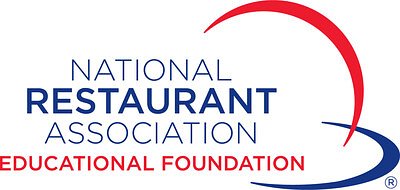
Investing in Future Chefs: ProStart Grants Aim to Ease Restaurant Labor Crunch
A new wave of grants is empowering high school culinary programs, equipping students with skills and experience to fill critical labor gaps in the restaurant industry. Here’s how.
Investing in Future Chefs: ProStart Grants Aim to Ease Restaurant Labor Crunch
By Timothy Bell
As the restaurant industry continues to grapple with a persistent labor shortage, a new initiative is aiming to cultivate the next generation of culinary professionals. The National Restaurant Association Education Foundation (NRAEF)’s ProStart program recently announced a new round of “Grow Grants,” totaling [insert total amount, if available – couldn’t find in provided materials] to support high school culinary arts programs across the country. But this isn't simply about funding – it's a strategic investment in addressing a critical skills gap and ensuring the long-term health of the hospitality sector.
A Recipe for Shortage: The Challenges Facing Restaurants
The restaurant industry has been facing a severe labor shortage for years, exacerbated by the pandemic and changing workforce dynamics. Finding skilled cooks, servers, and managers has become increasingly difficult, forcing restaurants to reduce hours, limit menus, or even close their doors. “The challenge isn’t just finding warm bodies, it’s finding skilled bodies,” said a restaurant owner in the Midwest. “We need people who understand food safety, have basic culinary skills, and can work as a team.”
Experts point to several factors contributing to the shortage, including low wages, demanding work conditions, and a lack of career development opportunities. This has led many workers to seek employment in other industries, leaving restaurants scrambling to fill vacancies.
ProStart: A Pathway to Culinary Careers
The NRAEF’s ProStart program is a two-year, industry-recognized high school curriculum that combines classroom learning with hands-on experience. It's designed to prepare students for both entry-level positions in the restaurant industry and further education at culinary schools. The “Grow Grants” are specifically targeted at providing high school programs with resources they desperately need – updated equipment, modern curriculum materials, and professional development opportunities for teachers.
“These grants are crucial for schools that might not otherwise have the funds to provide students with the training they need to succeed,” explained a culinary arts educator in California. “It allows us to keep our programs current, offer high-quality instruction, and provide students with the skills employers are looking for.”
Beyond the Kitchen: Developing Essential Skills
While technical culinary skills are essential, ProStart goes beyond the kitchen, emphasizing the development of crucial soft skills. The curriculum focuses on teamwork, communication, leadership, problem-solving, and a strong work ethic – skills that are highly valued by employers across all industries.
“It’s not just about knowing how to cook,” said a restaurant manager who has hired several ProStart graduates. “It’s about being able to work under pressure, communicate effectively with colleagues, and provide excellent customer service. ProStart students consistently demonstrate these qualities.”
The program also emphasizes the importance of professionalism, time management, and responsibility, preparing students for the demands of a fast-paced work environment.
Filling the Skills Gap: A Strategic Investment
Analysts believe that investing in culinary education programs like ProStart is a strategic move to address the long-term labor shortage in the restaurant industry. By providing students with the skills and experience they need to succeed, these programs are creating a pipeline of qualified workers who can fill critical positions.
“It’s a proactive approach to workforce development,” said a labor economist. “Instead of waiting for workers to come to us, we’re actively training them and preparing them for the jobs of the future.”
ProStart’s unique approach, combining classroom learning with hands-on experience and industry mentorship, sets it apart from other culinary education programs. The program’s curriculum is developed and validated by industry experts, ensuring that students are learning the skills that employers are looking for.
The program culminates in state and national competitions, providing students with opportunities to showcase their talents and compete for scholarships.
The Rachael Ray Foundation’s Role and Commitment
The Rachael Ray Foundation, in partnership with Yum-o!, has been a key supporter of the ProStart program, providing significant funding and resources. This demonstrates a clear commitment to culinary education and workforce development. The Foundation’s philanthropic strategy emphasizes both culinary education and animal welfare, highlighting its dedication to making a positive impact on the community.
“Supporting ProStart aligns perfectly with our mission,” said a representative from The Rachael Ray Foundation. “We believe that investing in culinary education is an investment in the future of the hospitality industry.”
Looking Ahead: Building a Sustainable Workforce
As the restaurant industry continues to evolve, it’s clear that investing in culinary education is more critical than ever. Programs like ProStart are playing a vital role in building a sustainable workforce and ensuring the long-term health of the hospitality sector. While the immediate benefits are felt through a skilled and qualified workforce, the program also fosters a passion for culinary arts and inspires the next generation of chefs, managers, and restaurant owners.
Experts believe that a collaborative approach, involving schools, restaurants, industry organizations, and philanthropic foundations, is essential to address the challenges facing the restaurant industry. By working together, they can create a pipeline of qualified workers and build a sustainable future for the hospitality sector.
While the ProStart program isn’t a silver bullet, it’s a significant step in the right direction. By investing in culinary education, we can empower students, build a skilled workforce, and ensure that the restaurant industry continues to thrive for years to come.
